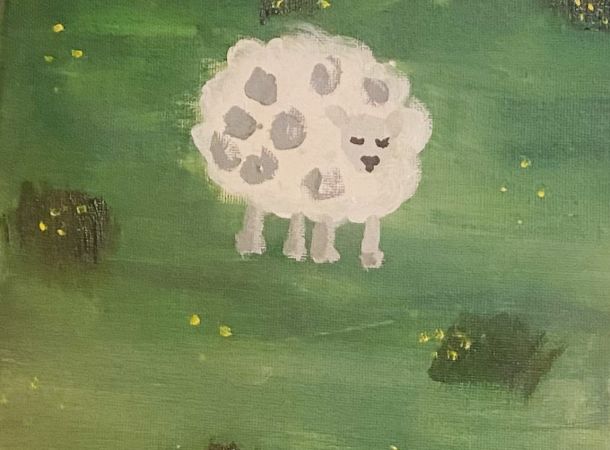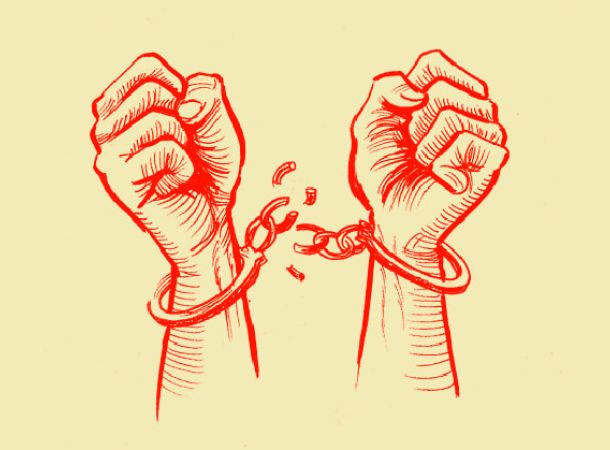Leviticus or Vayikra (He Called)
Here we are, knee-deep in Leviticus, the heart of the Torah. Leviticus is where people who do not understand the Ancient Near East culture try to invalidate Judaism as an inhumane religion. If you wanted to judge Judaism based on its cultic practices, you would have to consider the traditions of the surrounding nations.
The surrounding ANE practices included spilling unheard-of amounts of human blood to satiate an insatiable god or gods. This bloodshed of children, women, and enslaved people was an abomination to Yahweh, the God of Abraham, Isaac, and Jacob. However, God instituted a sacrificial system of animals, grain, oil, and wine to draw near His Divine Presence in the Tabernacle.
In the Garden of Eden, Adam and Chavah walked with God. They were in His Divine Presence, uninhibited. It was not until they disobeyed His instructions that they were aware of their nakedness or aware of shame. God provided a covering for them.
Genesis 3:21: Also, for Adam and his wife, the Lord God made tunics of skin and clothed them.
In Genesis 3:21, we have the very first atonement or covering. The word for tunics is kutonet, meaning to cover, and consistently refers to the Priestly garments (Lv 8.13 & 16.4). The Hebrew word for skin is or, meaning animal hide or skin, but it is also very similar to the Hebrew word for light. If this skin refers to animal hide, the first bloodshed was in the Garden when God covered their nakedness as an act of loving-kindness, so they would not be ashamed. If it refers to skins of light, God covered them with light, the Light of the Lamb slain from the foundations of the world (Rv 13.8). There is a scientific theory that the sun is slowly dying a star death. It caves in on itself and then regenerates, giving of itself to light up the world. What a beautiful image of the Light of Life that offers itself to give life to the world.
Some scholars say Leviticus 19:18 is the heart of the Torah.
Leviticus 19:18: You shall not take vengeance, nor bear any grudge against the children of your people, but you shall love your neighbor as yourself; I am the Lord.
The heart of the Torah, or the whole point of it, is love. What do sacrifices, blood, and guts have to do with love? They are all gifts that provide a covering so that our shame does not keep us from holiness.
Proverbs 10:12: Hatred stirs up strife, but love covers all sins.
1 Peter 4:8: Above all things, have fervent love for one another, for “love will cover a multitude of sins.”
James 5:20: Let him know that he who turns a sinner from the error of his way will save a soul from death and cover a multitude of sins.
The book of Leviticus describes how God loves us so much that He provided us with a covering of life from the beginning. When Leviticus calls a human “unclean,” it means that person has had a brush with mortality that would keep them from drawing near the Divine Presence. He is, after all, the God of Life and the living (Lk 20:38). The ritual laws and practices allowed someone “unclean” to draw near without the Divine Presence withdrawing. The sprinkling of blood on the elements of the Tabernacle was like sprinkling life on the Tabernacle since life is in the blood (Lv 17.11). Sin leads to death, so anyone who sinned or had physical contact with death (blood, emissions of the body, dead things, etc.) could not approach the Divine Presence without a covering. God is not bloodthirsty. He is not punishing animals or humans. It is love that inspired God to create a path back to Himself. The author of Hebrews says;
Hebrews 9:13-14: For if the blood of goats and bulls and the ashes of a heifer sprinkling those who have been defiled sanctify for the cleansing of the flesh, how much more will the blood of Messiah—who through the eternal Spirit offered Himself without blemish to God—cleanse our conscience from dead works to serve the living God?
John 3:16: For God so loved the world that he gave his one and only Son, that whoever believes in him shall not perish but have eternal life. (bold accent added)
The above verse explains why Yeshua’s life-which is in His blood, covers a multitude of sins. It cleanses our Temple, our dwelling, so the Divine Presence can live in us, even in our humanity. Even in the Hebrew Scriptures, God instituted alternative ways to draw near, other than sacrifices and offerings.
Hosea 14:3 TLV: Take words with you and return to Adonai. Say to Him: “Take away all iniquity, and accept what is good, so we may repay with offerings of our lips.
Psalm 116:17: I will offer to thee the sacrifice of thanksgiving, and will call upon the name of the Lord.
Hosea 6:6: For I desire mercy and not sacrifice, and the knowledge of God more than burnt offerings.
1 Samuel 15:22: So Samuel said: “Has the Lord as great delight in burnt offerings and sacrifices, as in obeying the voice of the Lord? Behold, to obey is better than sacrifice, and to heed than the fat of rams.
It is pretty cool that the God of the Universe created multiple ways for us to draw near Him. One could only bring a sacrifice or offering to the Tabernacle or Temple. Without a Temple, we draw near and engage with the Divine Presence through prayer, repentance, gratitude, praise, and acts of mercy and love. He’s got us covered.




Leave a Reply